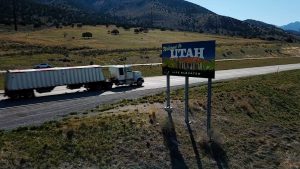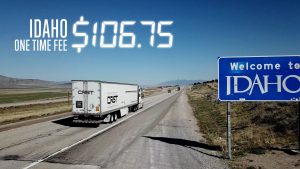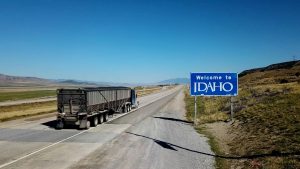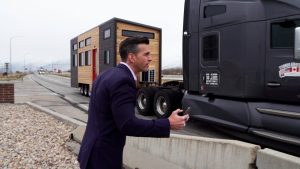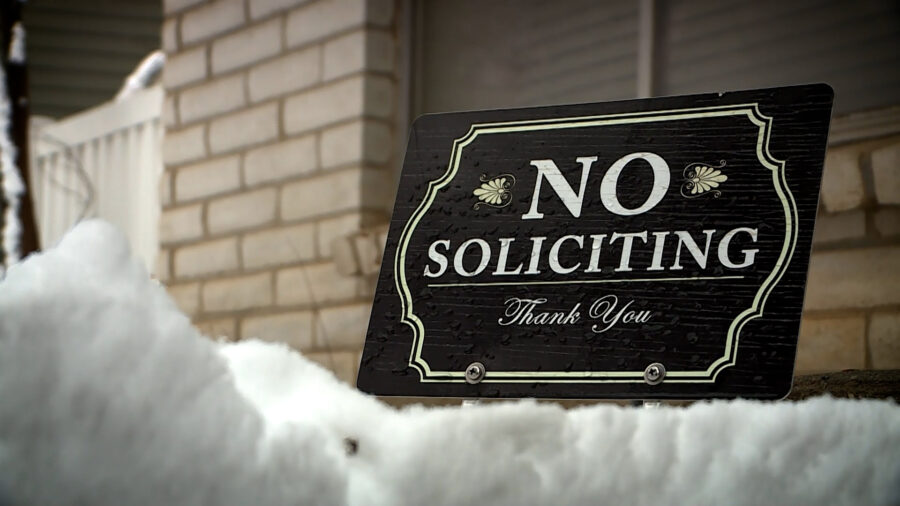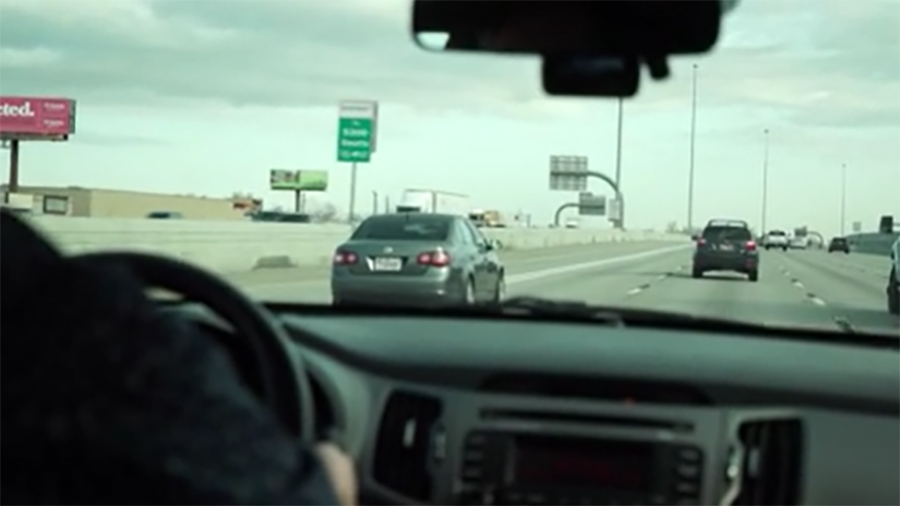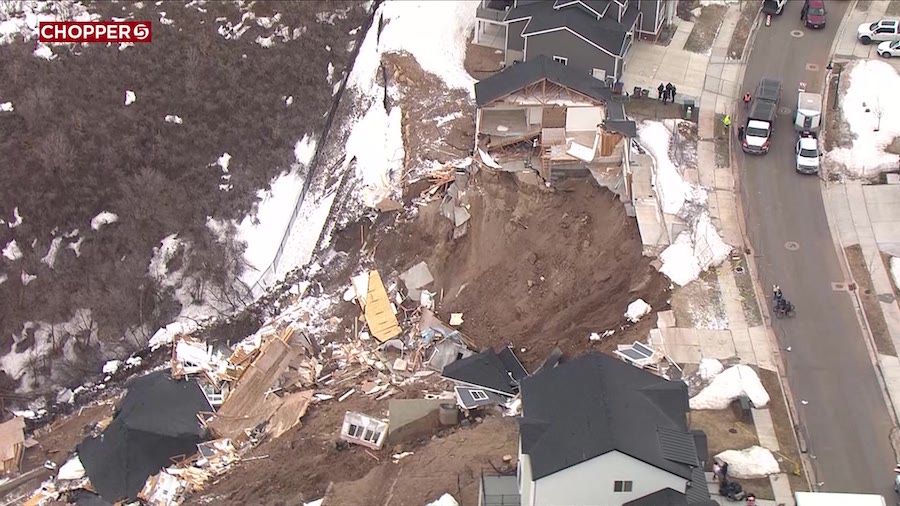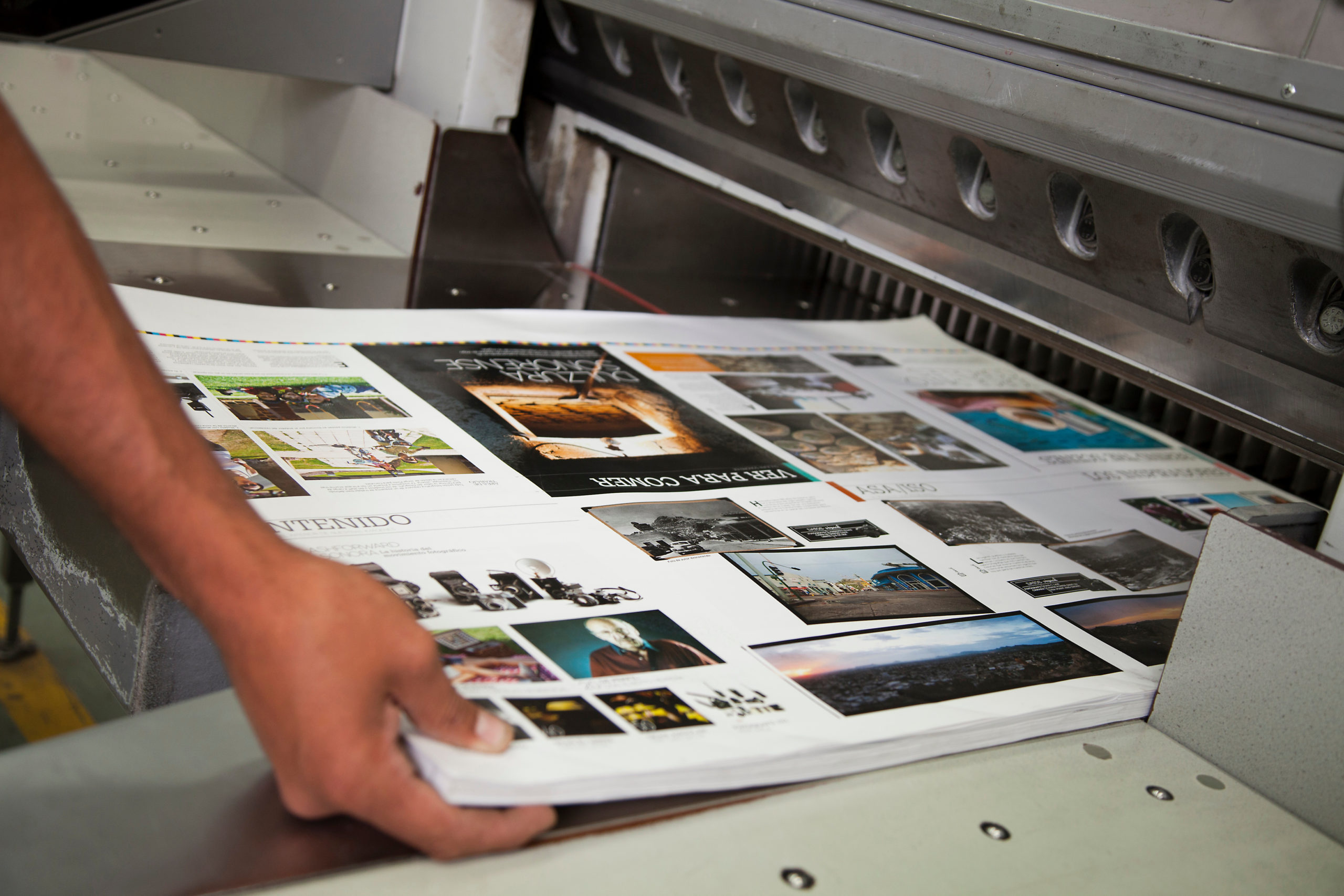KSL INVESTIGATES
Out-of-State Plates: KSL Investigates Trucking Trend Driving Revenue To Idaho
Apr 29, 2021, 10:48 PM | Updated: Jun 19, 2022, 9:57 pm
LAYTON, Utah — Layton resident Alan Curtis noticed it for years driving back and forth from his farm in Cache County: big trucks with Utah plates on the front, but Idaho license plates on the trailer.
“I see it almost every trip,” Curtis told KSL Investigators. He reached out wanting to know why so many were licensed in Idaho. “I wanted to have it investigated and see what the heck is going on, because we need those tax dollars for our own Utah roads.”
It’s a question KSL Investigators have received many times over the last year, with more people noticing the anomaly. Most expressed similar concerns as Curtis: is Utah losing out on tax revenue for the roads these trucks are using?
Saving Time and Money
We took the question to Rick Clasby, executive director of the Utah Trucking Association. “Obviously, the trucking industry will look to save money where they can,” he said, “and more importantly than that, maybe even, is efficiency.”
Clasby said registering trailers in Idaho appeals to many companies looking to save time and money because the state offers the North American Permanent Trailer Plate (NAPP). A one-time registration fee of about $106.75 lasts the lifetime of the trailer.
The NAPP does not require a business to be based in Idaho to take advantage of this registration.
In Utah, average trailer registration costs less, $95.12, but companies must renew the plate every year. Utah does offer a permanent plate, where registration fees are paid once. However, property taxes are still required to be paid on the trailer annually.
Clasby acknowledged licensing a big fleet could become expensive in Utah, sending more companies north of the Utah border.
“The state could be plating some of those tractors and trailers, and so they’re losing revenue by not doing so. To what extent, I don’t know,” he said.
Clasby explained truck trailer registrations vary greatly, because of how they’re used.
“Trailers don’t always reside where the tractor does,” he said. “We’re an interstate business… so sometimes the plating and licensing occurs in a different state than where the primary source of business is, and that’s because they have terminals or business in that state.”
To get an idea of how often that happens, the KSL Investigators sat at a truck stop in Brigham City. Over 45 minutes, we observed 66 trucks, primarily looking at trailer plates. Of these, 14 (21%) had Idaho license plates on the trailer. Only four trucks had Utah plates on the back end. The vast majority (73%) were from states other than Utah or Idaho.
Revenue Drives to Idaho
Since 2015, interstate trailer registrations have fallen 46.7% in Utah. There were 14,642 registrations in 2020.
A public records request of the Idaho Transportation Department showed 3,860 trailers owned by Utah companies were registered in Idaho last year, bring that state a total $382,635 in registration fees.
Utah saw $1,392,823.17 in revenue from interstate trailer registration and valuation fees last year. If these trailers had been registered in Utah, the Beehive state would have received about $367,163 more in 2020 trailer registrations.
Monte Roberts, director of the Utah Division of Motor Vehicles (DMV) is not overly concerned about this potential loss in revenue. “I think it is a misnomer that people think they’re not paying their fair share of taxes for the wear and tear on the roads.”
He explained trailers make up a small portion of all commercial registration fees. It’s actually the truck, or power unit, that contributes the most financially. Since 2015, Utah has seen a 27% increase in interstate power unit registration. Last year these power units brought in $13,090,441.90 in registration and valuation fees, roughly nine times that of the trailer units.
Roberts says regardless of where the truck is registered, Utah gets its fair share of those fees based on how many miles the truck drives on Utah roads. It is part of the International Registration Plan, or IRP.
“If my established place of business is Utah, and I drive miles in Idaho and Colorado and Wyoming, I have to report that,” said Roberts. “It’s through… a tax based on the miles I drive in each one of those states.”
In fiscal year 2020, the Utah Department of Transportation reported 8,582,946 trucks passed through Utah’s eight ports of entry. This includes all commercial trucks over 10,000 pounds, including construction equipment and box trucks.
Change in Status Quo? Not Likely
Roberts said losing trailer registrations doesn’t mean a huge loss for state revenue. It may have a larger impact on individual counties.
Two thirds of the total annual fees are valuation fees, which are county property taxes assessed where the business is located. If all Utah-based companies decided to register their trailers out-of-state, “The property tax that goes to those counties would basically be gone,” said Roberts.
Doing the math based on average valuation fees, Utah counties collectively lost $239,519 from those 3,860 trailers that were registered in Idaho last year.
Roberts does not see the current policy changing, as prior legislative efforts have not been successful. And he fears mandating Utah trailer registrations for Utah-based companies could have a larger negative effect, as companies may decide to relocate their business to another state.
“I say be careful about pushing this too far, because it’ll likely do nothing but reduce the number of trailers registered in Utah and lose out on the property tax that they’re currently paying,” he said.
Have you experienced something you think just isn’t right? The KSL Investigators want to help. Submit your tip at investigates@ksl.com or 385-707-6153 so we can get working for you.

